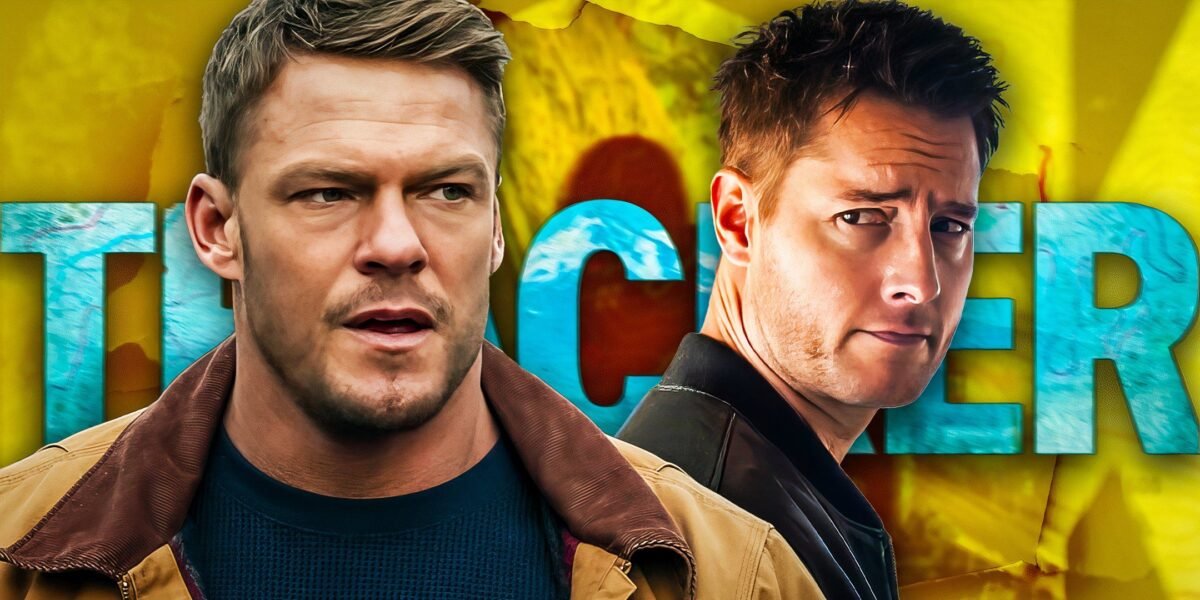![]()
5 Ways Tracker Outshines Reacher
In the crowded world of action-packed thrillers, Reacher and Tracker have emerged as two standout shows, both appealing to audiences looking for sharp storytelling, high-octane action, and compelling protagonists. While Reacher has garnered significant attention due to its source material—based on the popular Jack Reacher series by Lee Child—Tracker has quietly built its own fanbase with a distinctive approach to the genre. Here’s why Tracker edges out Reacher in key areas.
1. More Complex Protagonist
Reacher focuses on the almost superhuman Jack Reacher, a former military police officer who roams the country solving crimes, usually by outsmarting and overpowering his enemies. While Reacher's no-nonsense attitude and physical prowess are impressive, his character often leans on invulnerability, which can make his journey predictable.
On the other hand, Tracker offers a more complex protagonist. The central character in Tracker is a man with a mysterious past, burdened with a dark history that shapes his moral compass and decision-making. Unlike Reacher’s often straightforward sense of justice, the tracker operates in moral gray areas, making him a more layered and relatable figure. Viewers are more engaged, wondering how his internal conflict will play out in each episode.
2. Deeper World-Building
While Reacher excels in standalone stories with contained arcs, Tracker takes a more immersive approach to world-building. It crafts a universe filled with shadowy organizations, interwoven character backstories, and an overarching mystery that unfolds slowly. Every location in Tracker feels like it has its own history, and each episode peels back another layer of this larger world.
This long-form storytelling provides Tracker with the kind of narrative depth that pulls viewers into its universe, making each episode more than just an action-packed adventure but a chapter in a much larger, evolving plot. Reacher, by contrast, sticks to a formula that feels more episodic, focusing primarily on the problem of the week rather than the broader world around the protagonist.
3. Unpredictable Storylines
If there’s one thing action-thriller fans crave, it’s suspense. Tracker consistently delivers on this front, keeping audiences on the edge of their seats with unpredictable plot twists and moral dilemmas. The show is full of unexpected betrayals, shifting alliances, and complicated character motivations, creating a tension that’s palpable throughout its episodes.
In contrast, Reacher’s stories, while entertaining, can often feel predictable. The show’s formula of pitting Jack Reacher against corrupt officials or criminal masterminds—who inevitably underestimate him—becomes somewhat repetitive. Fans of Tracker appreciate the way the show refuses to settle into a pattern, always keeping its audience guessing about who can be trusted and what might happen next.
4. More Emotionally Grounded
While both shows feature tough protagonists who are capable of handling intense physical confrontations, Tracker stands out for its emotional depth. The lead character often grapples with personal demons, making him more emotionally vulnerable than Reacher, whose calm under pressure rarely wavers. This emotional depth isn’t just confined to the protagonist—secondary characters in Tracker also deal with relatable struggles, whether it’s loss, redemption, or revenge. These emotional stakes raise the impact of the action, making it feel more grounded in human experience.
In Reacher, the lead character’s invulnerability often acts as a barrier to emotional connection. While Jack Reacher’s stoic nature is part of his charm, it can distance him from the audience, especially when compared to the more nuanced character work seen in Tracker.
5. Unique Cinematic Style
Tracker excels in its visual storytelling. The show’s use of shadow and light, as well as its inventive camera work during action sequences, gives it a distinctive cinematic flair that sets it apart from other action shows. Fight scenes in Tracker are carefully choreographed, often showing the protagonist’s vulnerability and the struggle involved in every confrontation, unlike the almost effortless victories we see in Reacher.
Additionally, Tracker’s varied settings—from desolate wilderness to crowded urban environments—are depicted with a visual richness that pulls viewers deeper into the narrative. The show isn’t just about the action; it’s about creating a world that feels tangible and lived in. Reacher, while competent in its production, tends to rely on standard action-thriller visuals that don’t offer the same level of artistic innovation.
Both Tracker and Reacher deliver exciting, pulse-pounding action, but Tracker manages to elevate itself with a more complex protagonist, deeper world-building, unpredictable storylines, emotional depth, and a unique visual style. For viewers seeking more than just a typical action hero, Tracker offers a richer, more engaging experience that makes it the superior choice in this showdown.













































































































